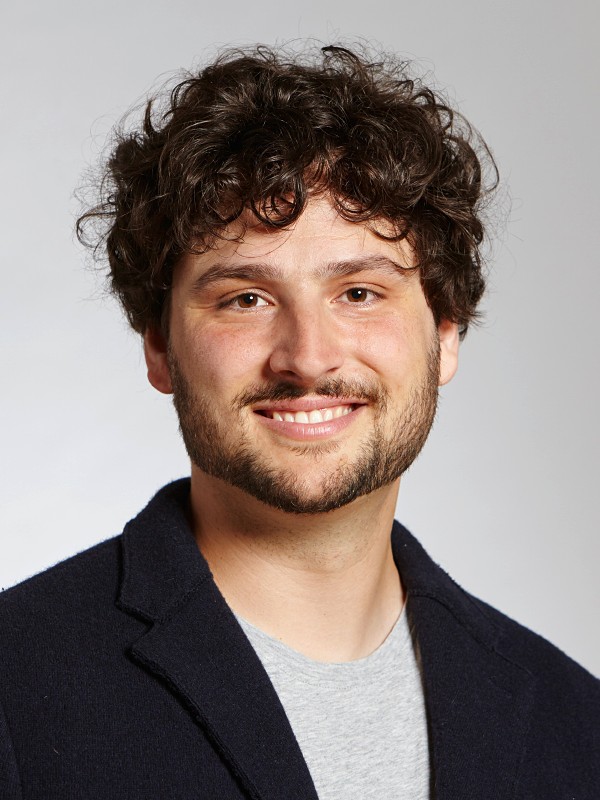Institute Seminars
Each teaching semester, our institute invites scientists with diverse backgrounds and expertise in the field of geosciences to share their knowledge with its staff and students. Find out who is speaking at IGMG in the current semester here!
In person seminars will take place in Building IA, Room 01/473 at 16:00. For hybrid or completely online seminars a Zoom link will be sent to you beforehand via Moodle.
Summer Semester 2024
15. Mai 2024
Prof. Dr. Daniel Herwartz (IGMG)

Title: Corals, Evaporites, Snowballs, selected tales from triple-O isotopes
Summary: Stable isotopes are used to reconstruct paleoenvironments over Earth's history. I will demonstrate how recent advances in triple oxygen isotope analyses can help quantifying individual parameters in various fields.
5. Juni 2024
Prof. Dr. Virginia Toy (University of Mainz)
![]()
Title - Calibrating rock's electrical properties to their composition and structure, based on data from the lab, the field, and the Alpine Fault and Ivrea-Verbano scientific drilling projects
Summary - Remote geophysical measurements of rock properties, reflecting distinct, commonly anisotropic arrangements of minerals and porosity, may be used to explore geo-resource distribution in Earth’s crust to tens of kilometres depth. To date, our scientific community have focussed on the geophysics of elastic wave propagation and made comparably little attempt to understand processes at depth from remote geophysical measurements of electrical properties. We aim to change the capability to make use of electrical data, by exploring the relationship of sample structures and compositions to laboratory and field-scale electrical property measurements. The focus of this presentation will be on datasets derived from scientific drilling into the Alpine Fault (New Zealand) and the Ivrea-Verbano Zone (Italy).
12. Juni
Prof. Philip Ruprecht (University of Reno, Nevada)

Title: The natural laboratory of Puyehue-Cordón Caulle that links crustal scale magmatism to eruption dynamics: When and how do rhyolitic magmas blow up?
Summary: Active volcanism requires a multi-disciplinary approach to forecast future unrest activity from both ongoing changes in the subsurface and from past activity. Thus, detailed timeseries of the heat and mass balance of the magmatic and near-surface hydrothermal system are necessary to constrain the state of the magmatic system as well as its transients through time. The Puyehue-Cordón Caulle volcanic complex is the site of three major subplinian to plinian eruptions that occurred in the last 100 years. These eruptions tapped a magmatic system that is thought to extend over more than 10 km laterally and currently deforms at rates of cm to dm per year. Furthermore, the most recent eruption in 2011-12 emplaced a very shallow intrusion only hundreds of meters below the surface adding to the multiple hazards associated with this volcanic complex.
In this presentation, I will give an overview of the many surface signals (geodetic, structural, hydrothermal) we can detect to estimate the thermal and mass budget of the system. I will also constrain through petrology the underlying magmatic system that represent an end-member of efficient single-step differentiation of basaltic mantle-derived melts to rhyolites. Mineral-scale geochemical records identify the conditions under which magmas are stored at depth and how the erupted rhyolite is formed and whether this rhyolite magma is approaching a critical state for future eruptions. Given the destructive nature of rhyolitic volcanism that is typically characterized by a long period of quiescence, the Puyehue-Cordón Caulle volcanic complex serves as a unique natural laboratory where pre-eruptive processes have and likely will be recorded on decadal timescales.
19. Juni 2024
Prof. Dr. Paolo Sossi (ETH, Zurich)

Title: Composition, structure and origin of the Moon
Summary: tba
17. Juli 2024
Dr. Inês Pereira (University of Coimbra, Portugal)

Title: Tracing subduction zone metamorphism using rutile and titanite
Summary: Subduction zone metamorphism is a hallmark of modern plate tectonics. The metamorphic rock record indicates the absence of LT-HP metamorphic conditions, typical of subduction zones, prior to the Neoproterozoic, which has since been used as evidence for the initiation of plate tectonics at the end of the Proterozoic. Because the rock record is susceptible to preservation biases, an independent approach is needed to test this geological record. One alternative is to look at sedimentary rocks, but this presents many challenges. In this talk, I will provide experimental and petrological evidence supporting rutile and titanite as candidates for subduction zone metamorphism, and show the advances made in using their trace element chemistries as tools to discriminate their growth conditions, which are critical in searching for evidence of metamorphic gradients through time.
Previous Seminars
Here you can find our previous seminar speakers, and a description of their work.